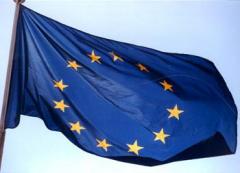IRELAND - CPT URGED TO ACT OVER USE OF NAVAL FORCES AGAINST PEACEFUL PROTEST

Council of Europe officials have been urged to press the Irish government over the use of military (naval) forces to police a peaceful protest in north Mayo last year.
The move comes after the Irish Department of Defence tried to justify the action by citing a spurious interpretation of the Defence Act 2000.
«CPT Secretariat Council of Europe F 67075 Strasbourg Cedex France
Dear Sir,
I refer to our correspondence to the Council of Europe on 10 th September 2008 which was copied to the CPT expressing concern about the use of military (naval) forces to assist the Irish police during peaceful protests by community groups opposed to commercial development in North Mayo.
In that correspondence to Secretary General of the CPT, Terry Davis, we highlighted our view that:
»Whilst we accept that there may be situations in which military personnel are deployed to assist civil authorities this normally only occurs in relation to situations where there is a grave threat to public security and safety or health. This was patently not the scenario that pertained in north Mayo.«
We also advanced that:
»We feel it is unfortunate that the Irish government chose to deploy military personnel in circumstances where legitimate protest of a non violent nature was being used. It is clear that in the course of these protests civilians could have been detained by military personnel acting to assist the Irish police. Any persons detained would also have been required to be held in temporary custody prior to transfer to permanent custodial accommodation.
It is clear that the military personnel were neither trained nor resourced to fulfil this role and it is of grave concern that no COE guidance to deal with such a situation is available.
I urge the Council of Europe to take steps to ensure that regulation/agreement is reached with member States to ensure that the facility to utilise military personnel to assist the civil power is not abused And where such facility is required as part of paramilitary assistance to law enforcement then the military personnel are required to be trained as per Section VIII of the CPT standards.«
Prior to contacting Secretary General Davis we had also raised the issue with the Irish government and our now in receipt of correspondence from the Office of the Minister of Defence, a copy of which is enclosed.
You will see that Ireland's Defence Minister defends the deployment on the grounds that it is consistent with the `White Paper on Defence – 2000'.
However having studied this item of legislation it is clear that the deployment of military forces as an assistance to the civil power is designed to be used in cases of dire emergency i.e. internal security or major disaster.
It stretches credulity somewhat to suggest that the situation in north Mayo where local people were involved in peaceful civil protest meets any criteria for such deployment and we are concerned that military forces so deployed are acting in a police role whilst being outside the scrutiny or purview of standards set down under the appropriate Conventions of the Council of Europe.
I trust that the CPT will raise this issue with the Irish government.
J B Moffatt (Mr) Director of Information Celtic League
Cc
An Taoiseach Brian Cowen The Minister for Justice, Equality and Law Reform Dermot Ahern TD The Minister for Defence Willie O Dea TD Rt Hon Terry Davis Secretary General Council of Europe»
In addition to the Council of Europe moves the Celtic League are also considering rasing the issue on the next occasion that the Irish government has to appear before the United Nations Human Rights Committee.
J B Moffatt Director of Information Celtic League
05/03/09
CPT: European Committee for the Prevention of Torture and Inhuman
or Degrading Treatment or Punishment.
■